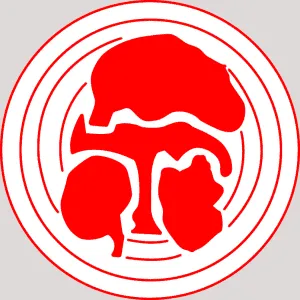Frequently Asked Questions
Frequently asked questions about hypertension
A person is said to have hypertension if the systolic blood pressure is persistently equal to or above 140 mmHg, or diastolic blood pressure is equal to or above 90 mmHg, or both. This is because people with blood pressure at these levels and above are predisposed to complications.
About one of every three adults in Nigeria has hypertension. Unfortunately, most of the people with hypertension are not aware of having the condition. majority of those who are aware of having hypertension are not on treatment or properly treated.
In the majority of people with hypertension, the cause is genetic. Genes are the building blocks of the body. This means that hypertension can inherited from parents.
Yes. These factors include ageing, family history of hypertension, obesity, a sedentary lifestyle, excess salt intake, cigarette smoking, and excess alcohol. These factors may lead to hypertension on their own or hasten the onset of hypertension in those who are genetically predisposed.
Blood pressure values are written with systolic pressure above and diastolic pressure below a line. Normal systolic blood pressure ranges from 90 to 120 mmHg while normal diastolic pressure ranges from 60 to 80 mmHg. Individuals with systolic blood pressure above 120 mmHg but less than 140 mmHg and/or diastolic blood pressure above 80 mmHg but less than 90 mmHg are said to have Pre-hypertension. Some people with pre-hypertension eventually develop hypertension.
Pressure is the physical force exerted on an object by something in contact with the object. During each heartbeat, the heart contracts to pump blood around the body through pipes or tubes called arteries. The force exerted against the wall of the arteries is called blood pressure.
The maximum pressure exerted when the heart contracts is called systolic blood pressure. The heart relaxes after each contraction and the pressure produced during this period is called diastolic blood pressure.
Blood pressure values are written with systolic pressure above and diastolic pressure below a line. Normal systolic blood pressure is equal to or less than 120 mmHg while normal diastolic pressure is equal to or less than 80 mmHg
Yes. Many people believe that hypertension is caused by stress or too much worry. Yet, others think that hypertension is caused by witchcraft.
In most people, hypertension has no symptoms. Thus a lot of people only realise that they have hypertension when they present in health care facilities with complications.
The common complications of hypertension include stroke which causes the inability to move one side of the body; heart failure which causes difficulty in breathing; and kidney disease which causes facial swelling and reduced quantity of urine.
This is because hypertension has no symptoms. Thus, people may have hypertension for a long time without knowing. Yet hypertension quietly and surely causes damage to the body and leads to deadly complications.
Hypertension can easily be diagnosed by measurement of blood pressure in a health care facility or even at home.
By knowing your number, we mean one should know one’s blood pressure values. This is to prevent the deadly complications of hypertension.
The person should see a doctor for adequate evaluation, counselling and commencement of treatment.
Hypertension can be treated using medicines. There are over 100 medicines for the treatment of hypertension. Most people will require 2 medicines. Each medicine may be a single tablet or two or more medicines combined in one tablet.
It is most convenient to take medicines for hypertension in the morning or evening. One advantage of taking medicine in the morning is that it can be taken in the evening in case one forgets to take it in the morning.
Medicines for hypertension is taken for life. This is because hypertension cannot be cured.
When blood pressure becomes normal following intake of medicines, it means this is the type and dose of medicine required to control the hypertension. The blood pressure will go up if one stops taking the medicine.
However, if one develops symptoms such as dizziness, especially on standing from sitting or lying position or unusual sweating, one should immediately see one’s doctor or health personnel to determine if the blood pressure is too low.
Yes. Every medicine has side effects. There are however no serious side effects of the medicines used in treating hypertension. Secondly, when intolerable side effects occur, there are several alternative medicines that can be used. Therefore, if one develops unusual symptoms when taking medicine for hypertension, the person should see a doctor or health personnel.
Healthy lifestyle or lifestyle modifications are very effective in reducing blood pressure in those who have hypertension, and in preventing hypertension. Lifestyle modifications include avoiding excess salt intake, obesity and excessive stress; regular exercise such as brisk walk and increased intake of natural fruits and vegetables.
Many people believe that natural agents such as garlic, ginger, olive oil, ‘sobo’ drink, ‘moringa’ leaves, bitter leaf and onion are effective as alternatives to medicines in treating hypertension. Though these agents may have minimal blood pressure-reducing effects, the quantity required to significantly lower blood pressure will be too large to be tolerated.
Some people have said that they know when their blood pressure is high or normal. This is usually based on whether they have symptoms such as headache, poor or lack of sleep and restlessness among others. It has been confirmed that these are not true.
Nigeria is one of the leading religious nations. Everything is possible with God. The current knowledge and medicines used to treat hypertension are consequences of prayers, God’s intervention and hard work. People with hypertension are therefore encouraged to pray and take their medicines.
Yes. This is possible if hypertension is detected early and one takes one's medicines regularly and lives a healthy lifestyle.
This is because some other conditions such as diabetes, obesity and lipid disorders frequently coexist in a person with hypertension. A person with hypertension should also be screened for these conditions.
Download the full FAQ
